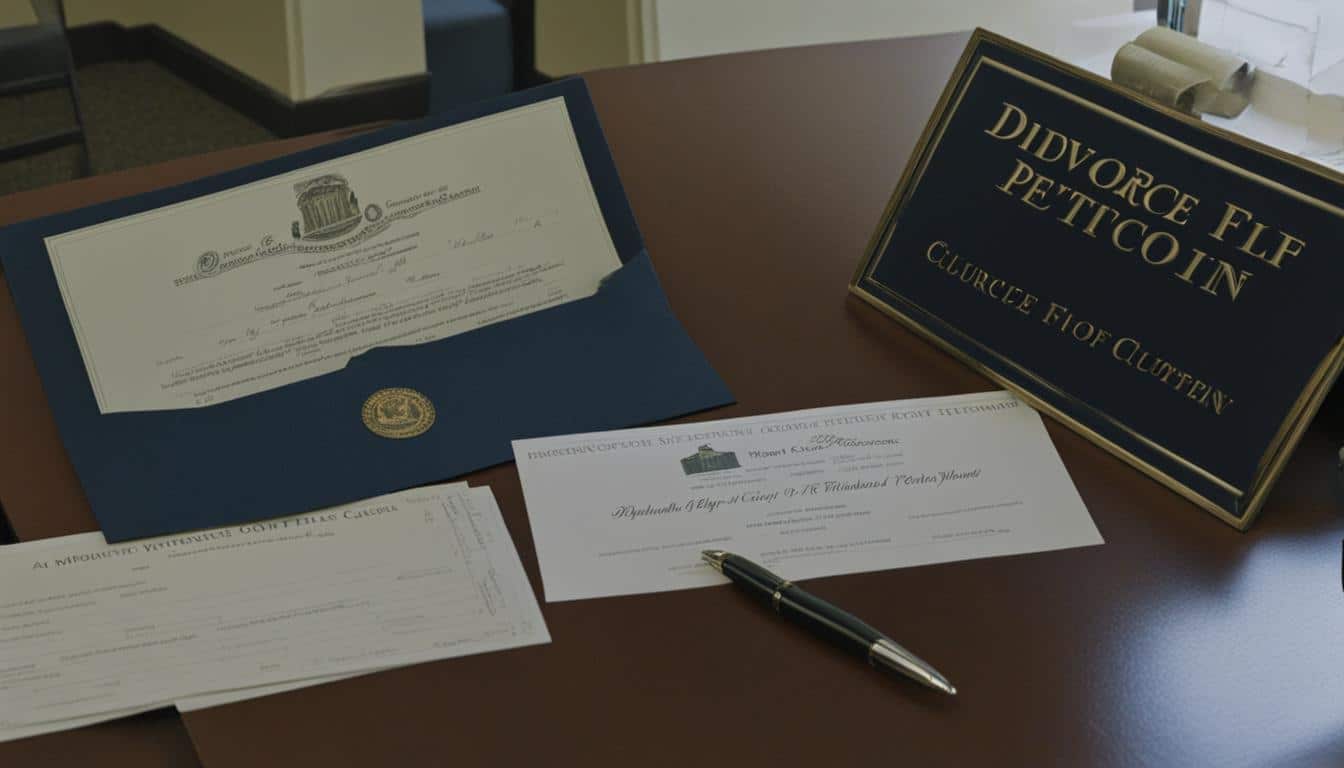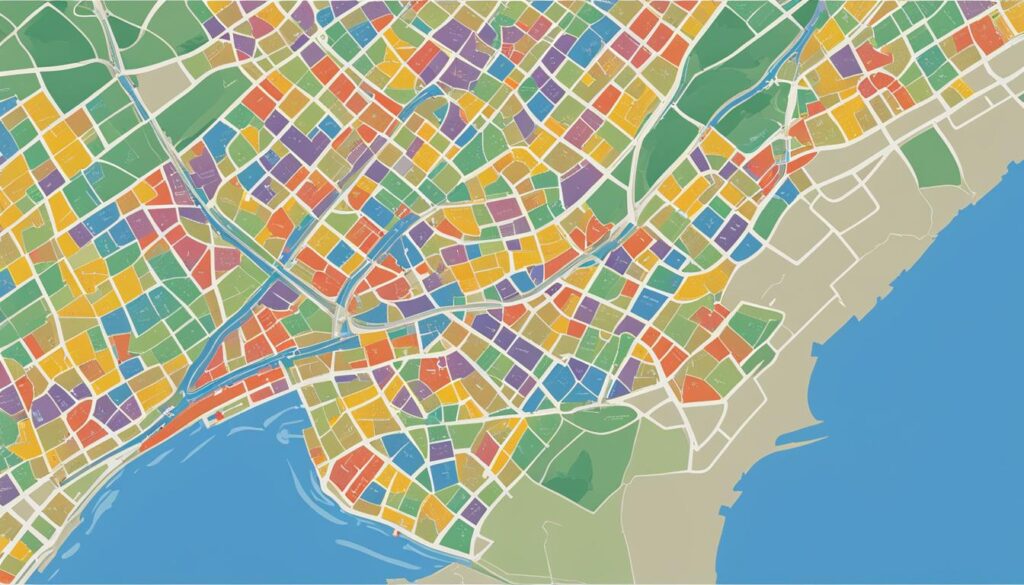Physical Address
304 North Cardinal St.
Dorchester Center, MA 02124
Physical Address
304 North Cardinal St.
Dorchester Center, MA 02124

Filing for divorce in Monmouth County, NJ, can feel like navigating a maze blindfolded. But it doesn’t have to be that way. Imagine clearing the fog and finding a straightforward path. That’s what we’re here for.
In Monmouth County, the process has its quirks, just like any other area. Whether it’s understanding the legal jargon or knowing which documents to file, it’s about breaking down the steps into manageable pieces.

We’ll walk you through the essentials, from the initial paperwork to what you can expect in court. Don’t wander through this process alone. Keep reading to find clarity and confidence in your next steps. Ready to turn the page on this chapter? Let’s dive in.
To get more info on filing for divorce in New Jersey, find a detailed overview in our article, How to File for Divorce in New Jersey.
Residency requirements
To file for divorce in Monmouth County, New Jersey, you or your spouse must have been a resident of the county for at least 12 consecutive months prior to filing. This residency requirement ensures that the county has jurisdiction over your divorce case. If neither party meets the residency requirement, the divorce filing should be done in the county where you currently live. It’s important to consult with a divorce attorney to determine if you meet the residency requirements before proceeding with the filing.
In Monmouth County, both fault and no-fault grounds for divorce are recognized. It’s important to understand the grounds for divorce when considering filing for divorce in Monmouth County, New Jersey.
Fault grounds require one party to prove that the other spouse is at fault for the breakdown of the marriage. These grounds are based on specific reasons such as adultery, cruelty, abandonment, addiction, institutionalization, imprisonment, or deviant sexual behavior. Providing evidence is necessary to support fault grounds for divorce in Monmouth County.
On the other hand, no-fault grounds for divorce do not require proof of wrongdoing. They are based on irreconcilable differences or living separate and apart for a certain period of time. No-fault grounds provide a more amicable approach to divorce proceedings, focusing on the fact that the marriage has irretrievably broken down.
Understanding the different grounds for divorce in Monmouth County is crucial for making informed decisions about how to proceed with your case. Whether you choose fault grounds or no-fault grounds, it’s advisable to consult with a Monmouth County divorce attorney who can provide guidance based on your specific situation.
Filing for divorce in Monmouth County involves several steps. First, you need to gather all the necessary documents, including the Complaint for Divorce, Summons, Confidential Litigant Information Sheet, and Certification of Self-Represented Litigant. Next, you will need to complete these divorce forms accurately and thoroughly, providing all the required information.
Once the forms are completed, they should be filed with the Family Division court clerk’s office in the appropriate county. It’s important to follow the specific filing procedures of the county to ensure a smooth process.
Keep in mind that the Monmouth County divorce process may also require additional forms or documentation, depending on your specific circumstances. Consulting with a divorce attorney or researching the official guidelines of the Monmouth County Courthouse can provide you with the most up-to-date and accurate information.
Remember, starting the divorce procedures in Monmouth County can be complex, and it’s crucial to follow the correct steps and provide all the necessary information to avoid delays in the process.
Filing for divorce in Monmouth County requires payment of filing fees. The exact amount of the fees may vary depending on the specific county and the type of divorce you are filing (contested or uncontested). It’s recommended to contact the Family Division court clerk’s office or consult with a divorce attorney to determine the current filing fees in Monmouth County.
| Service Description | Fee | Additional Notes |
|---|---|---|
| Filing Fee for Divorce with Children (New Jersey) | $325 | Additional charges for process serving, copy costs, and postage may apply. |
| Filing Fee for Divorce without Children (New Jersey) | $300 | Additional charges for process serving, copy costs, and postage may apply. |
| Short Certificate | $5 | – |
| Validating Short Certificate within 1 Year of Issue | $3 | – |
Having a clear understanding of the cost of filing for divorce in Monmouth County is essential for effective financial planning during the divorce process. The filing fees cover administrative costs and contribute to the functioning of the Family Division court. By knowing the exact fees, you can budget accordingly and avoid any unexpected financial surprises.
It’s important to note that the filing fees may vary and are subject to change. The Family Division court clerk’s office will have the most up-to-date information on the current fees. Consulting with a divorce attorney can also provide valuable insights into the expected costs of filing for divorce in Monmouth County.
If you are unable to afford the filing fees for your divorce in Monmouth County, you may be eligible for a fee waiver. The fee waiver allows you to have the fees waived or reduced based on your financial situation. To apply for a fee waiver, you will need to complete an application and provide supporting documentation to prove your inability to pay the fees. The court will review your application and make a determination based on the information provided.
If you are facing financial hardship and cannot afford the filing fees for your divorce, a fee waiver can be a valuable option. By obtaining a fee waiver, you can proceed with your divorce proceedings without the worry of financial burden. It is important to follow the necessary steps and provide proper documentation to qualify for the fee waiver.
When applying for a fee waiver in Monmouth County, NJ, you will need to complete an application form provided by the court. The form will require you to provide information about your income, assets, and expenses to demonstrate your financial need. Additionally, you may need to provide supporting documents such as pay stubs, tax returns, and bank statements to further substantiate your situation.
The court will carefully review your application and supporting documents to determine if you meet the eligibility criteria for a fee waiver. Factors such as your income, expenses, and financial obligations will be considered during the evaluation process. If approved, the court may waive the filing fees entirely or reduce them based on your financial circumstances.
It is important to note that fee waivers are granted on a case-by-case basis, and the court’s decision is final. If your fee waiver request is denied, you may still have alternative options available to help alleviate the financial burden. Consulting with a divorce attorney or seeking legal aid can provide guidance and assistance in exploring other potential avenues for obtaining a fee waiver or reducing the associated costs.
The court is located at:
71 Monument St, Freehold, NJ 07728, United States

When it comes to filing for divorce in Monmouth County, you may be wondering if it’s possible to do it without hiring an attorney. The answer is yes, but it’s important to understand the process of self-representation, also known as pro se representation, and the challenges that may come with it.
If your divorce is uncontested and both parties are in agreement on all issues, filing without an attorney can be a feasible option. However, it’s crucial to educate yourself about the divorce laws and procedures in Monmouth County before proceeding. This will ensure that you accurately complete and file all the necessary paperwork.
While self-representation can save you money in legal fees, it’s advisable to seek legal advice or utilize online resources to obtain guidance during the process. Navigating the complexities of divorce can be overwhelming, and having professional guidance can help you avoid common pitfalls and ensure that your rights and interests are protected.
Remember, self-representation is not for everyone. If your divorce involves complex issues such as child custody, spousal support, or property division, hiring an experienced divorce attorney is highly recommended. They can provide you with the expertise and support needed to navigate through the intricacies of your case and achieve a fair and favorable outcome.
To see how this process of filing for divorce in Monmouth County compares to that in other New Jersey counties, check out our articles about how to file for divorce in Middlesex County and filing for divorce in Morris County.